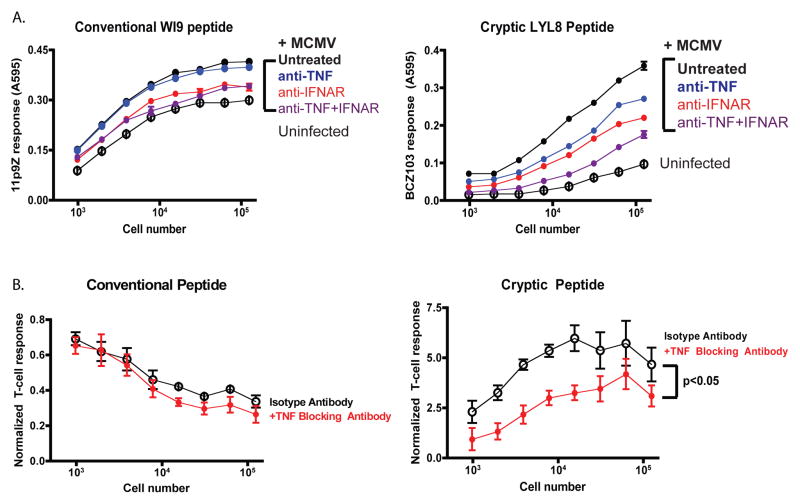Figure 6. Blocking TNF- and Type I Interferon signaling further inhibits the enhancement of cryptic peptide presentation upon MCMV infection.
A. WI9.LYL8 primary macrophages were infected with MCMV and then cultured with either TNF blocking antibody (MP6XT22), IFNAR 1 blocking antibody along with the respective isotype control antibodies. Data is representative of 2 independent experiments with each experiment having a triplicate of samples for each condition. Cells were then harvested and a T-cell hybridoma assay was set up as described in Figure 2. The Y-axis indicates the T-cell response (11p9Z specific hybridoma response for the conventional peptide and the BCZ103 specific hybridoma response for the cryptic peptide) and X-axis indicates the cell numbers plated. B. T-cell response to infection and blocking antibody, from different experiments, were normalized to that of uninfected samples. The reciprocal of this value was taken and plotted as a % of the uninfected. Mann-Whitney test showed a statistically significant effect of TNF blocking antibody on cryptic peptide presentation.

